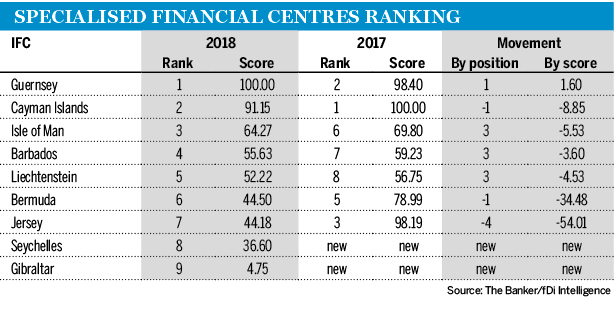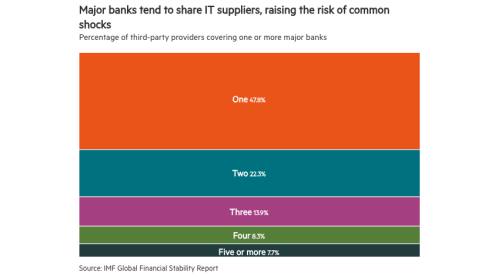While the Brexit debate is tossed around Europe, and the world gets used to the US's trade war parlance, The Banker’s annual ranking of international financial centres (IFCs) remains, once again, largely unchanged. As was the case in 2017, London leads by a narrow margin over New York.
This, of course, could change as the softening of Dodd-Frank rules may lead to higher profits for US banks – bank profitability being one of our key financial market data points. This could be particularly evident in investment banking, which has continued to prove a problematic business for some European counterparts.
Luxembourg's rise
While the top rankings remain unchanged, the first movement comes in eighth place, with Luxembourg climbing three places to leapfrog Toronto and Sydney. Frankfurt is also on the rise, by two places, clinching it a place in the top 10.
However, it is Vienna that jumps the highest: 11 places to 16th position. The Austrian capital owes its ascent to a much larger and, crucially, more international stock market. According to the World Federation of Exchanges, Vienna’s stock exchange market capitalisation expanded by 40% in 2017 thanks to a few exceptionally large initial public offerings, while its foreign listings as a percentage of total also grew significantly. Furthermore, the Wiener Boerse, by its native name, now also counts on a record 430 international securities being traded on its global market segment, according to the stock exchange data.
Second fastest growing in the ranking is Shenzhen, rising nine positions from 2017 to take 29th place. The Chinese hub generated more outward foreign direct investment (FDI) projects than a year earlier. Its banks grew, both in asset size and in terms of Tier 1 capital, and, impressively, almost twice as many financial services companies now operate there. China’s biggest IFC, Shanghai, has also progressed further up the ranking, from 15th to 12th, while Beijing remains the world’s largest banking hub, based on lenders’ financial statements, both by asset size and pre-tax profits.
Among those that slid down the table, three US IFCs and one from Asia suffered the biggest drops: San Francisco, Chicago, Boston and Kuala Lumpur all fell by seven places. In the case of the first three, the slip was largely due to a change in the methodology used assessing the workforces and cost effectiveness of financial centres by the World Bank, The Banker's source for both data groups. For Kuala Lumpur, the drop is due to a poorer performance regarding inward and outward financial services FDI.
Turmoil in Argentina seems to have only moderately shaken its key financial centre. The shrinking number of financial services companies in Buenos Aires has been more than counterbalanced by improvements in workforce data, which include a higher percentage of employment in the services sector. Although moderate, this resulted in an overall improvement for the financial centre – one place up from the bottom of the list, which is now occupied by Rio de Janeiro.
Guernsey leads the specialised financial centres ranking.
Methodology
The Banker’s ranking of IFCs is based on data ranging from financial markets indicators to economic potential to business environment factors. A total of 82 indicators have been used in our analysis. The ranking focuses on the level of international business and the value offered to institutions seeking to expand their international operations. In recognition of the fact that data for specialised financial centres is seldom consistent with that for mainland financial centres, The Banker has surveyed each specialised IFC and has compiled a separate table using information relevant to these locations. Publicly available data sources were used as well as The Banker Database and fDi Markets.








